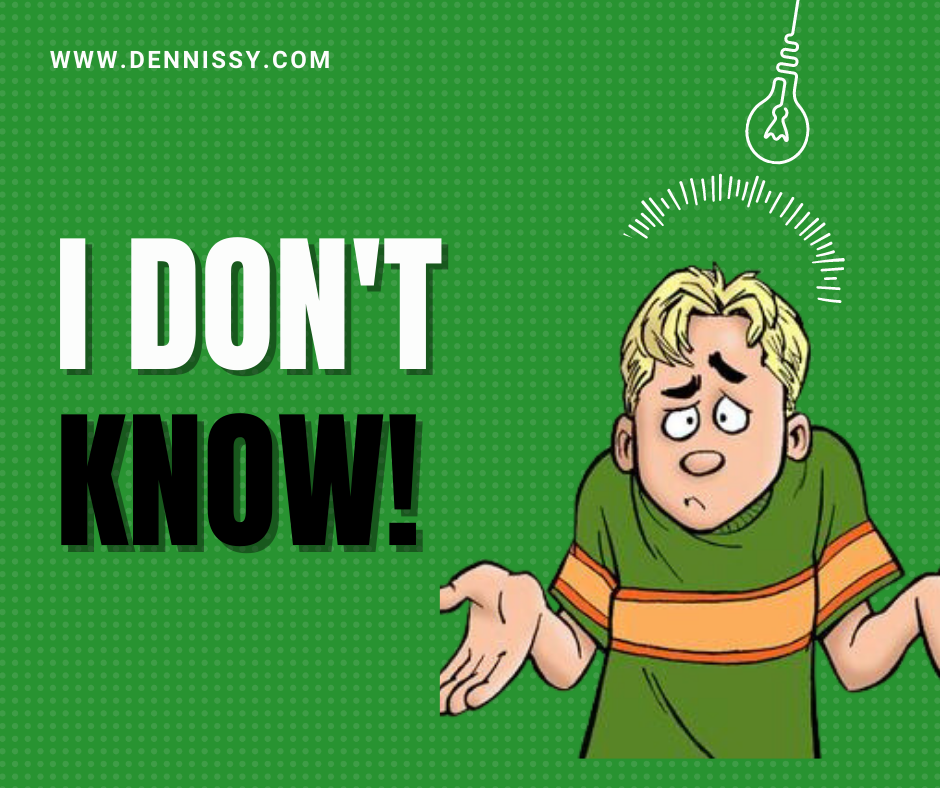“What I’ve found in business is that almost no one will ever admit to not knowing the answer to a question. So even if they absolutely have no idea what the answer is, if it’s within their realm of expertise, faking is just an important part… And I’ve found it’s really one of the most destructive factors in business – that everyone masquerades like they know the answer and no one will ever admit they don’t know the answer.” – Steven Levitt, Freakomics
“I don’t know” might be the correct answer people must hear. We all grew up with the premise that a leader should know everything and have an answer to every question we have.
As I mature into leadership, I often say, “I don’t know,” more often than when I started leading people. Looking back, it might have been because of an image I was trying to project. I was tasked to lead people, and I thought I needed to know everything or pretend to know everything.
It started when we were introduced to a system of learning and tests in school. Almost all test requires us to know the answer. When you don’t know, you are given an F, which is deducted from your overall grade. As a grade 1 student, our educational system requires us to know the answer, or we don’t go to the next level. In leadership, the people we lead expect us to know everything. So to win their hearts, we pretend that we know everything. It is a sign of weakness to say, “I don’t know.”
We don’t realize that when great leaders say I don’t know, it challenges them to learn, study, and ask around to solve the problem. For example, during one of our strategic meetings, we had yet to find an answer to a problem. Since we had no answer, it forced us to enter into more profound and challenging conversations that we hadn’t entered into before. It made us name the problem we are facing rather than skim thru the meeting pretending we have it all figured out.
